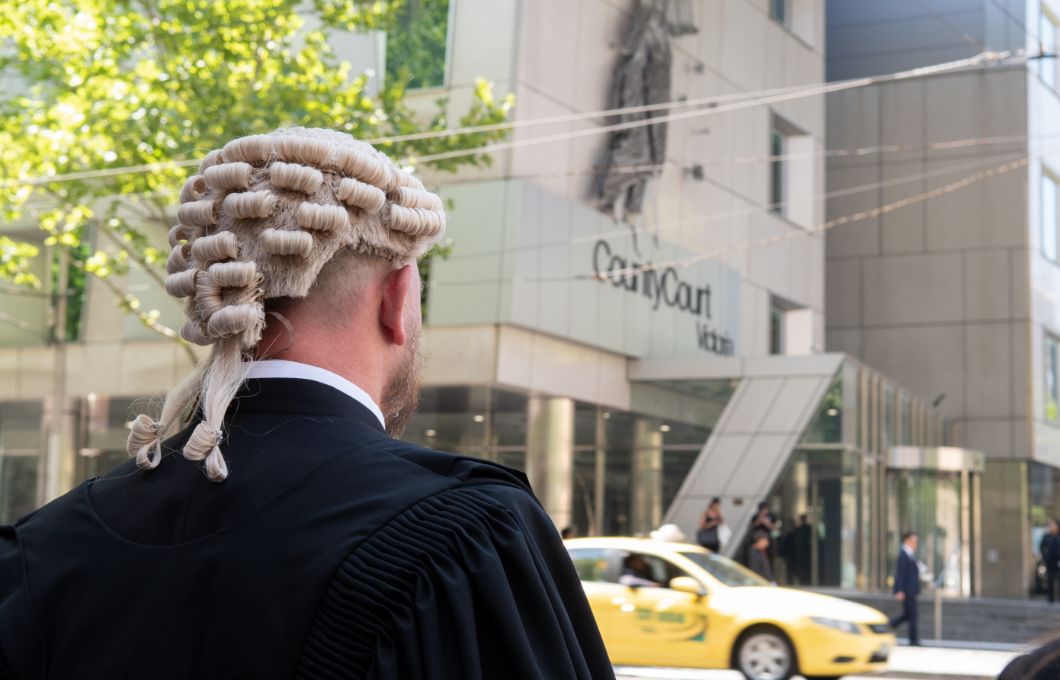
1. The police case should be tested
If you are reading this, either you, a friend or a loved one, may have been served with Charge Sheets and/or may have been served with what is called the Preliminary Brief.
Charge Sheets
A common example is that a person has received charge sheets in relation to an allegation of an assault. There may be three charges as follows:
- Intentionally cause injury;
- Recklessly cause injury; and
- Unlawful assault.
These charges likely all relate to the same incident and therefore, not all of the charges will actually proceed, despite being on the charge sheet. In a case such as this, your lawyer should seek to negotiate which charge proceeds, with intentionally cause injury (indictable offence) being the most serious charge and unlawful assault (summary offence) the least serious charge. As you can see, your charge sheets alone are not always as they may seem.
Preliminary Brief
This larger collection of documents usually includes your charge sheets, witness statements and any prior criminal history (and traffic history if a traffic offence). It also includes a police summary about what occurred. There may also be footage to go along with the brief, together with your taped record of interview. This combination of information/evidence presents the police case against you.
It is natural for clients to tell us that they can prove that they didn’t do what is alleged and sometimes it is obviously helpful to provide evidence which contradicts the prosecution case (such as alibi evidence). However, the starting point in most cases, is that the prosecution must prove that you did what is alleged, rather than you prove that you did not do what is alleged.
Therefore, it is important that your lawyer reads the preliminary brief from cover to cover and then makes an assessment as to whether the prosecution will be able to build a successful case against you. What you need is honest and accurate advice, not someone who will simply tell you what you want to hear, only then to fail to deliver.
2. There may be another alternative
Sometimes we speak to clients who admit guilt at the outset and who want to limit the damage. If you intend to plead guilty, there may be another option, rather than simply entering a guilty plea. One such option is called Diversion.
What is Diversion? Simply put, Diversion requires that you admit guilt, but rather than finishing at that step, your matter is adjourned for a period of time for you to comply with certain conditions, and if successful, your matter is discharged. Not only do you avoid a conviction, but you also avoid a finding of guilt!
An example – It may be that you have a charge of theft – perhaps theft from a shop. This might be your first offence (Diversion can be granted even if this is not your first offence, but it is less common) and a finding of guilt or a conviction could result in the loss of your employment. Theft is a serious charge, and in fact, it was the most frequent charge before the Victorian Magistrates’ Courts in 2018-19. However, in certain situations, you may be eligible for Diversion. We would speak with the police officer who charged you (known as the Informant) and with the prosecution. Among other things, we would state that you admit guilt and that we think Diversion would be appropriate in the circumstances of your case.
If the police agree to proceed with Diversion, they will serve you/your lawyer and the court with a Diversion Notice. That notice might say as follows – 1 charge of theft – police recommend that the Accused write a letter of apology to the store, pay the money outstanding and make a donation to a particular charity. You are then required to fill out a form with the court (Diversion Questionnaire) and your matter goes before a Magistrate. If a Magistrate grants Diversion, then they will put in place a Diversion Plan, normally between 6-12 months. During that time, you must comply with the conditions and not commit any further offences. If you successfully complete the plan, your matter is discharged.
If you had not seen a lawyer and were not aware of Diversion, you may have gone through the normal process with the court and although a Magistrate may not have convicted you, you would still have a finding of guilt on your record. Many searches by employers etc now include findings of guilt, not just convictions. This is just one example of why having legal advice is critical.
3. It could change your life
As mentioned above, if you plead guilty in the court and your matter is not proceeding as a Diversion, then you will have a record of guilt against your name. The only way to avoid this is to either be granted Diversion as noted above, plead not guilty and win, have the police withdraw the charge/s or successfully appeal to a higher court.
If you plead guilty or are found guilty, and you are asked if you have any recordings of guilt against your name, the answer is yes, even if you were not convicted. However, if you are asked if you have any convictions, that will depend on the sentence.
In addition to the finding of guilt, the court may sentence you with or without conviction. We often make submissions as to why our client should not receive a conviction. Clearly, it is important to avoid a conviction where possible. Sometimes, whether for a job or travel etc, you may not be asked whether you have any recordings of guilt against your name, but rather, whether you have any convictions. If you receive a non-conviction sentence, then you can answer no.
There are a number of factors that the court takes into account when weighing up whether to sentence you with conviction or without conviction.
SENTENCING ACT 1991 – SECT 8
Conviction or non-conviction
(1) In exercising its discretion whether or not to record a conviction, a court must have regard to all the circumstances of the case including—
(a) the nature of the offence; and
(b) the character and past history of the offender; and
(c) the impact of the recording of a conviction on the offender‘s economic or social well-being or on his or her employment prospects.
(2) Except as otherwise provided by this or any other Act, a finding of guilt without the recording of a conviction must not be taken to be a conviction for any purpose.
(3) A finding of guilt without the recording of a conviction—
(a)does not prevent a court from making any other order that it is authorised to make in consequence of the finding by this or any other Act;
(b) has the same effect as if one had been recorded for the purpose of—
(i) appeals against sentence; or
- 8(3)(b)(ii) amended by No. 65/2011 s. 6.
(ii) proceedings for variation or contravention of sentence; or
(iii) proceedings against the offender for a subsequent offence; or
(iv) subsequent proceedings against the offender for the same offence.
Legal Advice is Essential
A conviction can result in the loss of your job, reduced job prospects and can even affect travel and insurance. Unlike all other Australian jurisdictions, Victoria does not have a spent convictions scheme and therefore convictions remain on your record for life – legal advice is essential!
Michael Nardi
Principal and Director of Nardi Lawyers

-
Michael0491 626 283
-
Nicholas0493 141 014
-
Email Address[email protected]
-
Address
Nardi Lawyers Pty Ltd
Suite 22 Level 1/797 Plenty Rd,
South Morang VIC 3752, Australia -
Address
456 Lonsdale Street, Melbourne, Victoria, 3000






